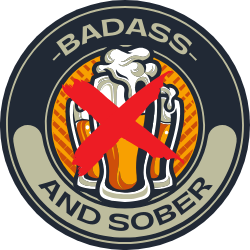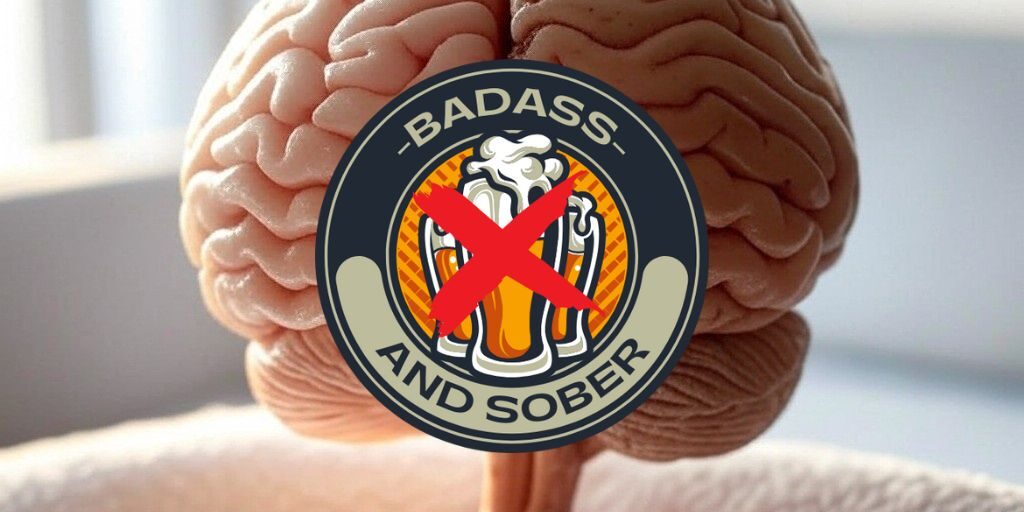When someone decides to quit drinking, they’re not just changing a habit—they’re embarking on a remarkable journey of neural transformation. The brain, with its incredible plasticity, begins a healing process that touches everything from decision-making to emotional regulation. Let’s explore the fascinating neuroscience behind this transformation and understand how sobriety literally rewires your brain for success.
The Alcohol-Addicted Brain
To appreciate the healing process, we first need to understand what happens in the brain during alcohol addiction. Alcohol hijacks the brain’s reward system by triggering the release of dopamine—our feel-good neurotransmitter—in quantities far beyond natural levels. Over time, this creates a dangerous cycle: the brain reduces its natural dopamine production and becomes less sensitive to it, requiring more alcohol to achieve the same effect.
The prefrontal cortex, our brain’s CEO responsible for decision-making and impulse control, also takes a hit. Alcohol use shrinks this region, making it harder to resist cravings and make sound judgments. Meanwhile, the amygdala—our emotion and stress center—becomes hyperactive, leading to increased anxiety and emotional instability when not drinking.
The Recovery Timeline: Your Brain’s Renaissance
The remarkable thing about the brain is its ability to heal and rebuild itself through neuroplasticity. Here’s what happens when you stop drinking:
First 2 Weeks
During this initial phase, the brain begins its recalibration process. The sudden absence of alcohol’s depressive effects can lead to temporary anxiety and sleep disruption as neurotransmitter levels adjust. However, neural repair is already underway. The brain’s natural stress management systems start to normalize, and cognitive fog begins to lift.
1-3 Months
This period marks the beginning of significant cognitive improvements. The prefrontal cortex starts to regain its volume and functionality, leading to better decision-making abilities and impulse control. Many people report clearer thinking and improved memory during this phase.
3-6 Months
The brain’s reward system begins to reset. Natural dopamine production increases, and receptors become more sensitive, allowing you to find genuine pleasure in everyday activities again. The amygdala’s hyperactivity starts to calm, resulting in better emotional regulation.
6-12 Months
By this stage, substantial neural rebuilding has occurred. Brain scans of recovered alcoholics show significant restoration of gray matter—the tissue containing nerve cell bodies. This regeneration correlates with improved cognitive function, emotional stability, and stress management.
The Neuroscience of Success
The brain changes that occur during sobriety don’t just repair damage—they create opportunities for enhanced performance:
### Enhanced Executive Function
As the prefrontal cortex heals, your ability to plan, focus, and follow through on goals improves dramatically. This heightened executive function is crucial for professional success and personal growth.
Emotional Intelligence
The rebalancing of the limbic system (our emotional center) leads to better emotional awareness and regulation. This translates to improved relationships and better stress management—key components of both personal and professional success.
Learning and Memory
Alcohol inhibits the formation of new neural connections. In sobriety, the brain’s ability to form these connections (called synaptic plasticity) returns, enhancing learning capacity and memory formation.
 Building on the Brain’s Natural Recovery
Building on the Brain’s Natural Recovery
While the brain has an remarkable ability to heal itself, you can support and enhance this process:
– Regular exercise increases production of Brain-Derived Neurotrophic Factor (BDNF), a protein that supports neural growth and repair
– Quality sleep gives your brain the opportunity to clear toxins and consolidate neural changes
– Proper nutrition, especially B vitamins and omega-3 fatty acids, provides the building blocks for neural repair
– Mindfulness practices have been shown to strengthen areas of the brain involved in self-awareness and emotional regulation
The Ripple Effect
The neural changes that occur during sobriety create a positive feedback loop. As executive function improves, making good decisions becomes easier. As emotional regulation strengthens, relationships improve. As the reward system rebalances, natural pleasures become more satisfying. These changes compound over time, creating an upward spiral of growth and achievement.
Get Badass this year
The journey to sobriety is more than just abstaining from alcohol—it’s a profound process of neural transformation that enhances your capacity for success in all areas of life. Understanding the neuroscience behind this transformation can provide hope and motivation during challenging times. Remember, every day of sobriety is a day your brain is healing, rewiring, and building a stronger foundation for your future success.
The science is clear: sobriety doesn’t just help you avoid the negative effects of alcohol—it actively enhances your brain’s capacity for achievement, emotional intelligence, and overall well-being. It’s a powerful reminder that in choosing sobriety, you’re not just leaving something behind—you’re moving toward an enhanced version of yourself, supported by the remarkable plasticity of your healing brain.




